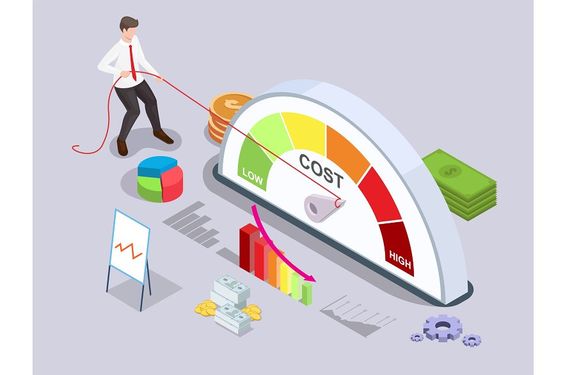In the United States, healthcare costs are well-known for their high price tags. Both businesses and individuals struggle to afford these expenses, leading to financial challenges and barriers to accessing necessary medical care. Unfortunately, this issue is unlikely to disappear anytime soon. However, there are steps that both businesses and individuals can take to better manage the costs of healthcare.
Here are eight tips for effectively managing healthcare costs:
Understand Your Healthcare Coverage Options
The first step to managing healthcare costs is to understand your coverage options. This means knowing what your insurance plan covers, what services and treatments are included, and what your copayments, deductibles, and out-of-pocket max are. By understanding your insurance plan’s coverage, you can make informed decisions about your medical care and avoid costly surprise bills.
Utilize Preventive Care Services
Preventive care services, such as regular check-ups and screenings, are designed to keep you healthy and identify potential health concerns early on. By utilizing these services, you can lower your healthcare costs in the long term by preventing or catching health issues before they become more serious.
Shop Around for the Best Prices
The cost of medical services can vary widely depending on the provider or facility that you choose. Shopping around for the best prices can save you money on healthcare. Websites like Healthcare Bluebook and GoodRx can help you compare prices for medical services and prescription drugs.
Consider Telehealth Services
Telehealth services, such as virtual doctor visits, can be a more convenient and cost-effective alternative to traditional in-person visits. Many insurance plans now cover telehealth services, and they can be especially helpful for minor ailments or follow-up appointments.
Negotiate Medical Bills
If you receive a medical bill that you cannot afford, do not hesitate to negotiate. It is possible to negotiate medical bills with providers and facilities to lower the cost of your care. Be sure to ask for a breakdown of charges and verify that each service was necessary to avoid paying for unnecessary treatments or tests.
Take Advantage of Health Savings Accounts
Health savings accounts (HSAs) are a tax-advantaged way to save money for medical expenses. If you have a high-deductible health plan, you may be eligible for an HSA. Contributions to an HSA are tax-deductible and funds can be used to pay for qualified medical expenses.
Avoid Unnecessary Medical Treatments
Unnecessary medical treatments can drive up healthcare costs significantly. Before agreeing to a treatment or procedure, talk to your doctor about the potential benefits, risks, and alternatives. With more information, you can make informed decisions about your care and avoid unnecessary expenses.
You might find these FREE courses useful
- Engineering Project Management: Scope
- Cloud Cost Management: Optimization Strategies
- Product Cost and Investment Cash Flow Analysis
- Budgeting and Scheduling Projects
Consider Healthcare Cost-Sharing Options
Healthcare cost-sharing options, such as health-sharing ministries or co-op insurance plans, can be an alternative to traditional health insurance. These programs involve pooling money with other participants to cover healthcare costs. While cost-sharing options can be more affordable than traditional insurance, they may not cover all medical services.
In conclusion, healthcare costs can be a significant financial burden for businesses and individuals. However, by understanding your coverage options, utilizing preventive care services, shopping around for the best prices, considering telehealth services and healthcare cost-sharing options, negotiating medical bills, taking advantage of health savings accounts, and avoiding unnecessary medical treatments, you can better manage the cost of your healthcare.
